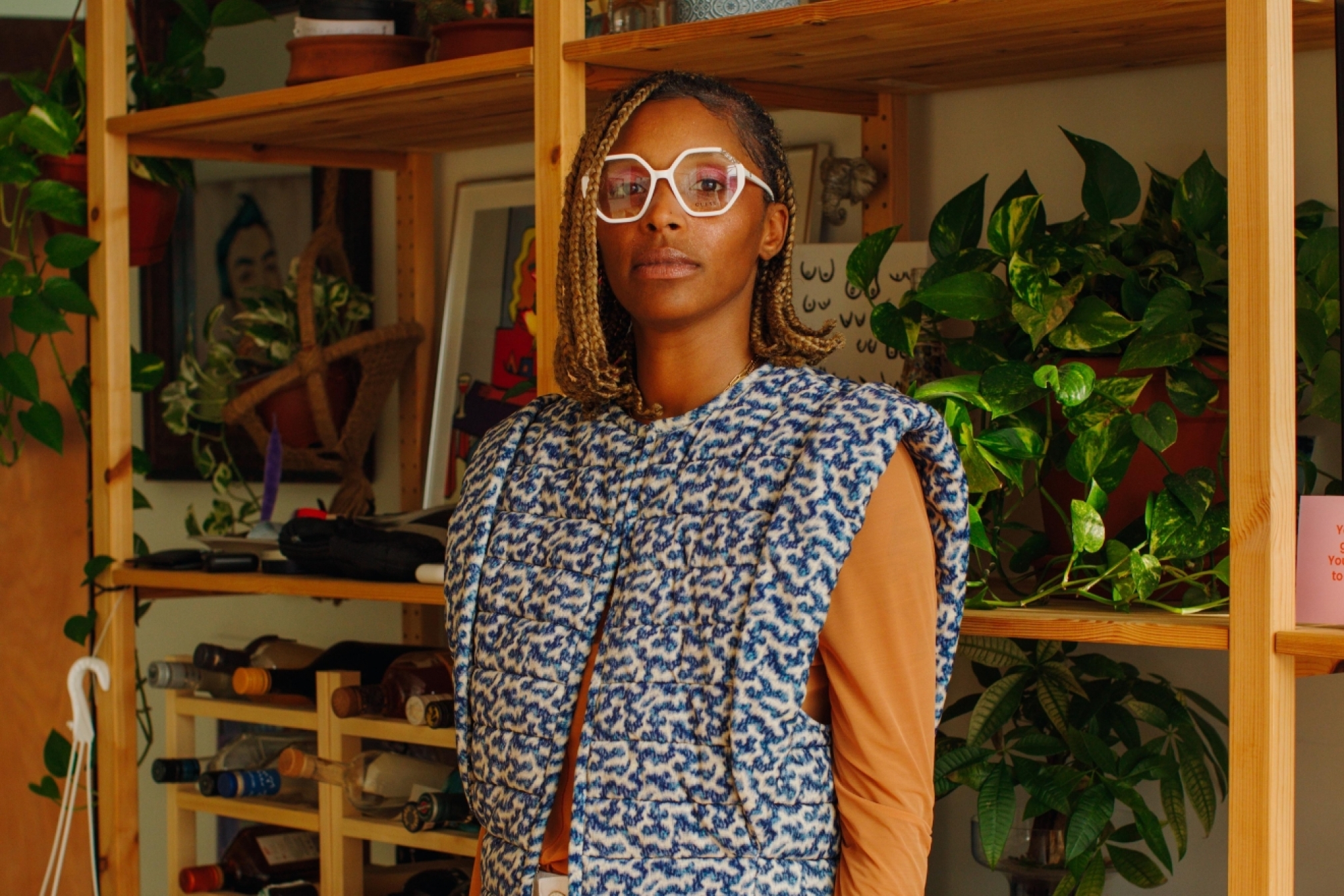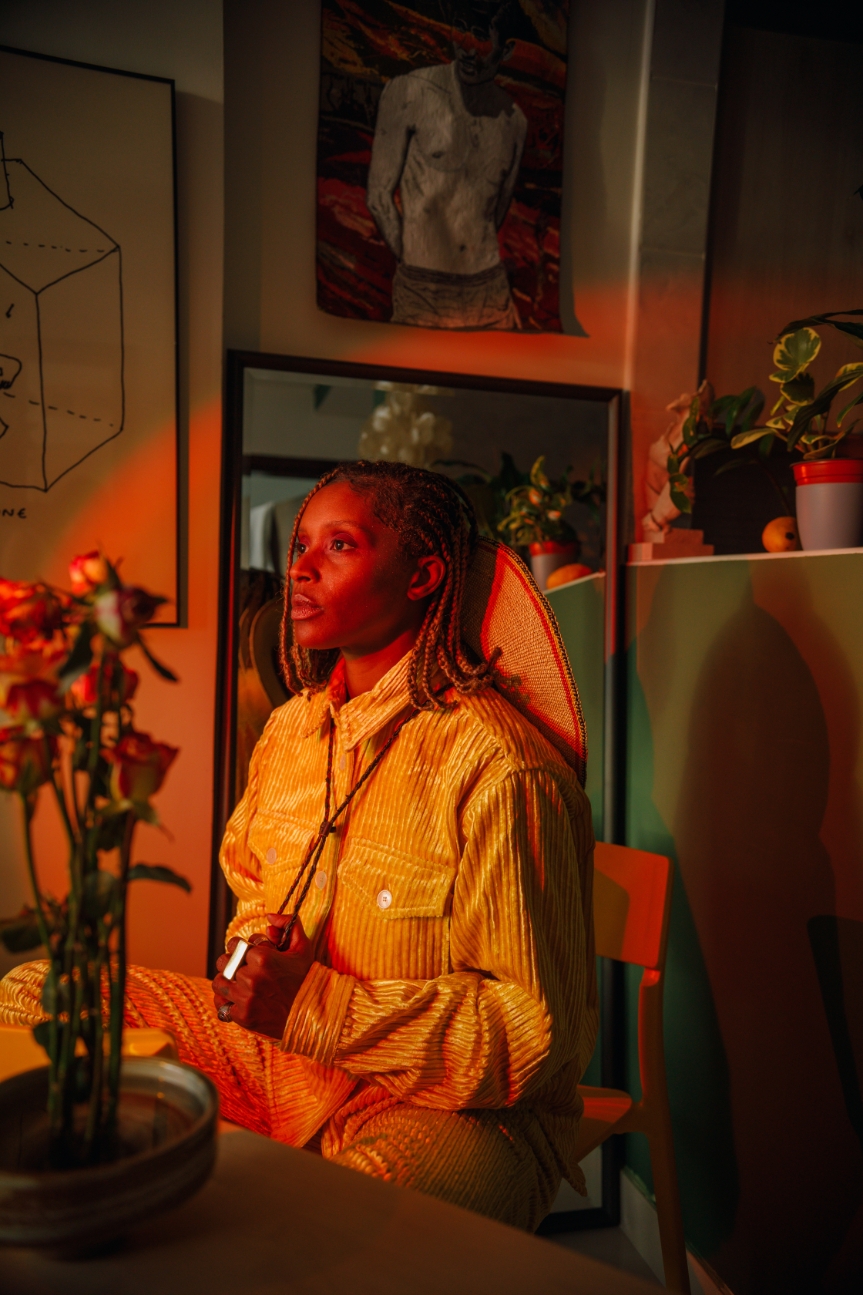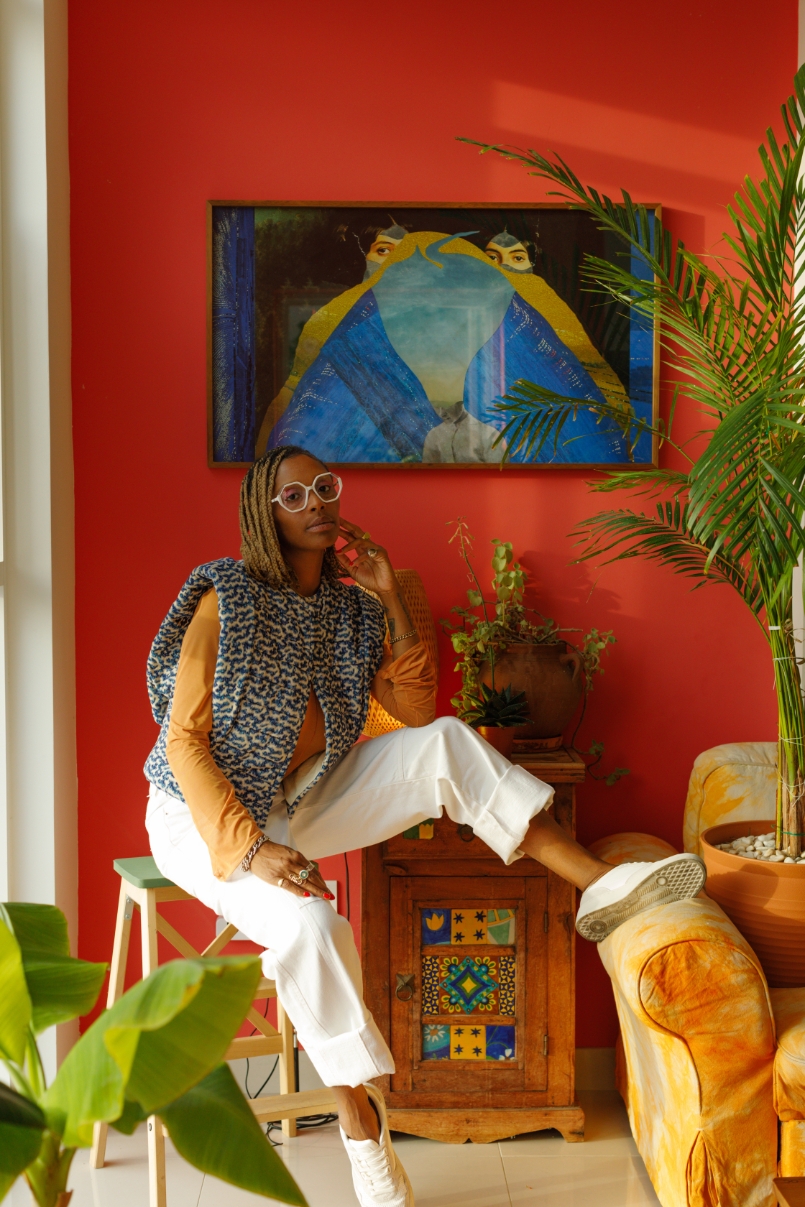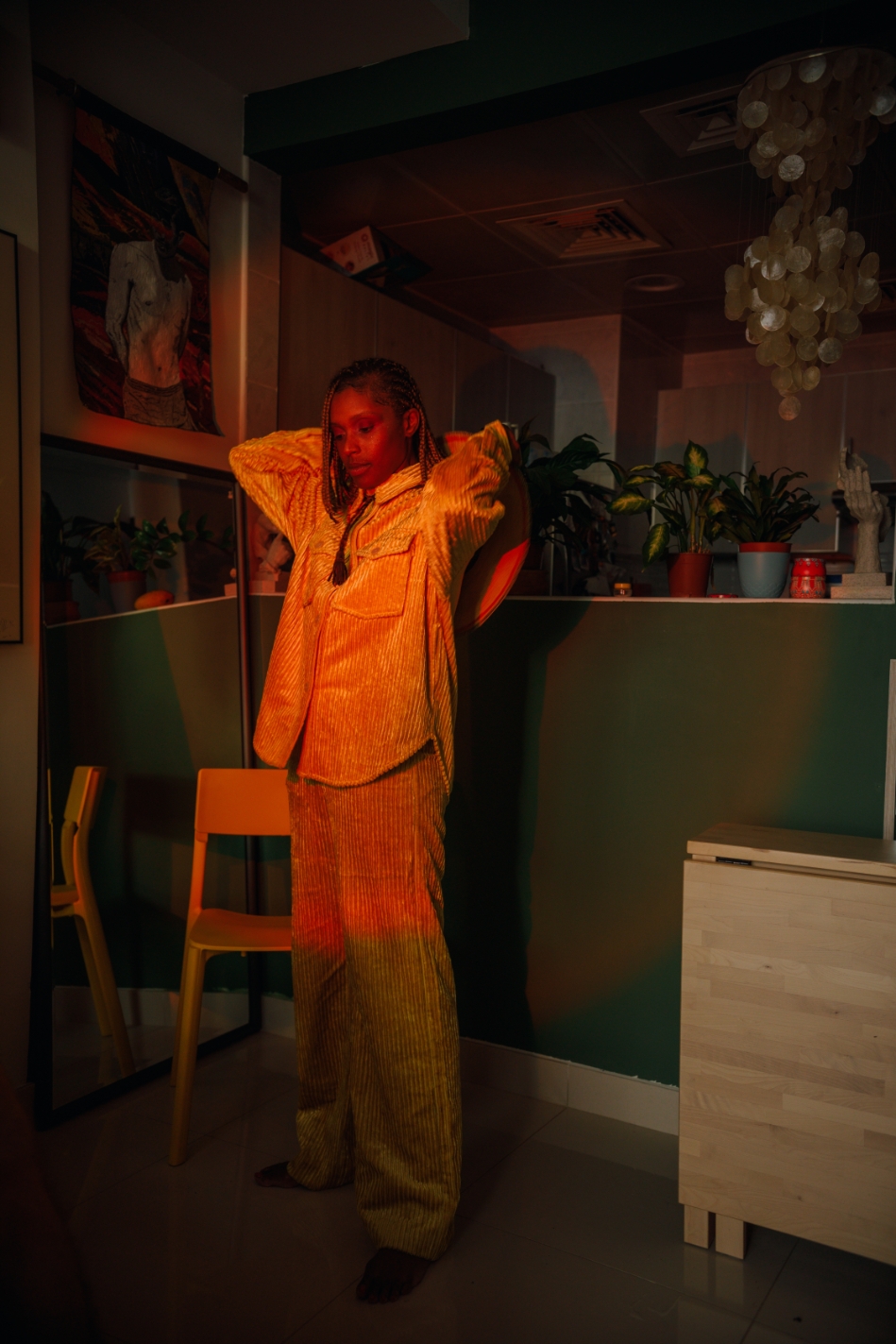 Interviews
Interviews
Megatronic redefines what it means to blend artistry with activism
With initiatives championing inclusivity & amplifying SWANA voices, she’s reshaping the narrative of inclusivity in electronic music
Megatronic is a name that resonates far beyond the decks. With over two decades of music industry immersion, this trailblazing artist has journeyed from playing guitar in her teens to fronting the electro-pop band Black Cherry, gracing stages at Glastonbury and SXSW.
Today, as a DJ, producer, and activist, she’s turned her multifaceted vision into a global movement, showcasing her signature sound all over the globe while championing inclusivity in the music scene.
As an artist, Megatronic’s music is a kaleidoscope of influences, seamlessly fusing electronic beats with the rhythmic heritage of Latin, African, and Arabic traditions. Her sound is bold and dynamic, weaving soulful melodies with bass-heavy grooves and infectious percussive energy.
Known for digging deep into obscure gems and cultural rhythms, her sets and productions take listeners on a journey across continents, creating an immersive sonic experience that’s equal parts innovative and celebratory. It’s a sound that builds bridges, crafting connections on dancefloors worldwide.
Just listen to her latest remix with MFWILEY for DJ Matpat below—Megatronic’s final release of 2024, which has us eagerly anticipating what she has in store for 2025.
Relocating from the UK to the Middle East in 2016, she immersed herself in the region’s rich cultural soundscapes, becoming a vital voice in its alternative music scene.
Through initiatives like Femme Fest—born from her earlier Femxle First Sessions—she champions equality, providing women and marginalised artists a platform to be seen and heard. Her Global Music Movement series on Worldwide FM further cements her role as a curator of reimagined SWANA (Southwest Asia & North Africa) heritage and global sounds.
In the interview below, discover how she’s an advocate, an innovator, and above all, a connector of cultures—proving that music, at its core, is about unity.

You’ve been active in the music scene for over 20 years. Can you tell us about some pivotal moments that shaped your journey as an artist, from your early days with Black Cherry to now?
Here are my pivotal moments, starting with the most recent:
- Releasing my first vinyl as a solo artist
- Handing my vinyl to Louie Vega
- Sharing the stage with Moodymann in Barcelona
- Opening for Keinemusik, especially at the Lisbon gig
- Selling out my first gig in Brazil (Ruda)
- Playing at the Bushfire Festival in Eswatini
- Performing at the Love Parade in Berlin (80,000 people!)
- Fundraising for Palestine (a 48-hour radio broadcast on Radio Alhara) with Bosq & Felonious Funk
- Black Cherry supporting Matthieu Chedid at KOKO
- Black Cherry being nominated for MTV’s Best Newcomer
- Touring the U.S. with Black Cherry after SXSW
- Releasing my first full album with Black Cherry
- Playing Glastonbury (Other Stage and John Peel Stage)
Your music blends elements from electronic, Latin, African, and Arabic traditions. How do you approach integrating these diverse influences into your sound, and how has this evolved over the years?
My early exposure to traditional music came from the West African tracks my parents played at home. As I grew older, I started noticing more cultural influences being integrated into modern music, which sparked a deep curiosity in me. This curiosity has driven me to travel to various countries and embrace different musical traditions.
This exploration is reflected in my sets, where I deliberately seek out obscure tracks to introduce new sounds to my audiences. It’s about creating a sense of community through diversity—music has always been a powerful tool for building those bridges.
What’s your earliest memory with music?
Listening to Prince in my dad’s car, singing ‘Purple Rain’ at the top of his voice while I sat in the passenger seat as a young child. I cherish those moments deeply.
Moving to the Middle East was a significant step in your career. What impact did immersing yourself in the culture and music scene there have on your work and personal outlook?
Moving to the Middle East was transformative. It opened my ears to music with more traditional structures and templates. I don’t love the term “world music,” but the cultural diversity in Dubai gave me a deep insight into different sounds and rhythms, which has enriched my musical palette.

What’s one thing the world doesn’t know or needs to know about the SWANA (Southwest Asia & North Africa) music scene?
The talent emerging from SWANA is incredible, and by 2028, I predict the fusion of traditional influences with modern-day sampling will be dominating the Billboard charts.
You’re passionate about supporting women in the male-dominated music scene. Could you share the inspiration behind Femme Fest and how it has evolved over time?
I’m passionate about supporting anyone treated as an underdog in this male-dominated industry. Instead of sitting back and complaining, I decided to act. Femme Fest was born from an earlier platform I created called Female First Sessions.
By 2019, it became clear that for real impact, Femme Fest needed to evolve into a grassroots-style festival. We invited female-identifying artists to participate in something that wasn’t about catering to a Western gaze but was unique to the Middle Eastern landscape.
In 2020, Stavros Antypas joined the journey, and this partnership brought Femme Fest to a whole new level. We expanded into visual arts alongside music, and even during COVID-19, we found innovative ways to create safe, fun spaces despite restrictions.
Your show on Worldwide FM, Global Music Movement, emphasises SWANA musical heritage. Could you elaborate on the importance of preserving and reimagining this heritage through your platform?
Preserving SWANA’s musical heritage is essential to honouring its depth and diversity. Through the Global Music Movement, I highlight up-and-coming talent and showcase how traditional sounds can evolve with modern influences. It’s about keeping the music alive while giving it space to grow.
SWANA’s music scenes often reflect underlying social and political tensions. How do you see music as a tool for social expression and change within this context?
Music is our universal language. As artists, we use it to share our stories and to connect with others. For me, music is everything—it’s the most powerful way I can contribute to positive change.

You’ve hosted Global Music Movement events in cities like Dubai, London, and Lisbon. How do audiences differ in each location, and what kind of impact do these events have on the local scene?
Each city shapes the event differently. In London, the focus has been on live acts, primarily of African heritage, with my partner Curls leading the way in curation. Dubai has been more about programming diverse line-ups for pre-existing events like Art Dubai, reflecting the city’s unique cultural tapestry. As for Lisbon—stay tuned, we’re planning something exciting there soon!
Your career encompasses so many roles—DJ, producer, singer, activist, and more. How do you balance these responsibilities, and what advice do you have for others managing similarly diverse careers?
Don’t do it! (Just kidding.) Honestly, it didn’t all happen at once. All the roles connect and work together to tell a cohesive story. My advice? Focus on your passion and let the rest fall into place naturally.
What does diversity mean to you in the context of the music industry, especially in the Middle East, and how are you working to promote it through your events and initiatives?
Diversity, to me, means true representation of the demographics around us. It’s not just about ticking boxes—it’s about showcasing talent and creating platforms for those voices to shine. Through my events, radio shows, and initiatives, I aim to fill the gaps left by mainstream line-ups.
As an advocate for women in music, what challenges do female and non-binary artists face today, and what steps are necessary for the industry to become truly inclusive?
The industry has come a long way, with festivals and promoters improving line-up diversity. But a big issue now is safety—particularly on dancefloors, which many women have stopped attending due to feeling unsafe. We need global standards for dancefloor etiquette to make clubs more welcoming.
Global Music Movement has brought on various special guests from the SWANA region. How do you choose these guests, and what qualities do you look for in artists who represent this heritage?
I choose artists who are not only talented but also dedicated to making a difference through their work. My radio shows on Radio Alhara and Oroko are platforms for showcasing this kind of talent—people who aim to make the world a better place through music.
What’s next for you and the Megatronic brand?
I’ve built a steady studio routine, carving out extra time to collaborate and finish my own projects while touring. In 2025, I’m excited to release work with Natasha Diggs, Morgan Wiley, Jkriv, ZeNigro, Djamou Sagare, Jitwam, Oliver Night, and Diogo Strausz, along with plenty of solo records and remixes.
Touring plans and other exciting announcements are coming soon—stay tuned!
Amira Waworuntu is Mixmag Asia’s Managing Editor, follow her on Instagram.
Cut through the noise—sign up for our weekly Scene Report or follow us on Instagram to get the latest from Asia and the Asian diaspora!


